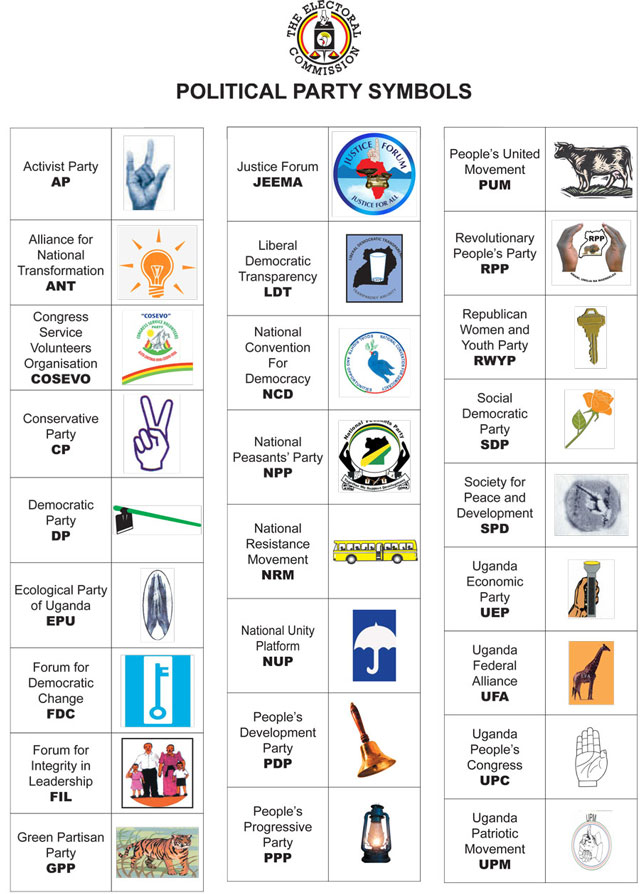
Often blamed for causing violence and instability, they can bring stability and development if well harnessed
COMMENT | MUKALAZI DEUS MUBIRU | President Museveni’s dislike for political parties is not a secret. He banned political parties once he captured power in 1986 and only allowed to have them back on the scene after failing to contain the dissent within his Movement system. He was forced to “let them go.” He stills vows and swears to crush and finish off the opposition.
In 2016, he promised Ugandans that in 2021, there will be no opposition in Uganda. He regularly refers to opposition actors as idiots and terrorists. During his speech on June 9, 2021 Hero’s Day celebrations, he alleged some opposition parties were planning to use force of arms to remove his government. This has created an impression that opposition parties are useless and unwanted in a democracy. But is this true?
Political parties are associations formally organised with the explicit and declared purpose of acquiring and or maintaining legal control, over the personnel and the policy of government. In Uganda, multipartism is the recognised system of governance and parties are supported from state funds.
President Museveni and many African leaders blame political parties for violence and instability. On the contrary, if well harnessed, the multiparty political system has great potential to bring about political stability, accommodate diverse interests and accelerate social development. While some African leaders would want to dismiss multiparty politics as merely suitable for the industrialised West or as fiats for liberal orthodoxy, multipartyism can be part of the solution to political chaos that generally characterizes several African states, Uganda inclusive.
Whether or not they win control of the government, political parties participate in governance. There are two ways political parties participate in governance either directly as the party in power or indirectly as the opposition. The losing parties play a vital role in the overall governance of the nation.
In multi-party democracy, the dominant party is always determined to retain power at all costs. In this kind of scenario, can parties have a chance of influencing the course of democratisation in a country? The answer is yes but it depends on the strength of different political parties in a country.
There are over 26 registered political parties in Uganda. However, many of these political parties are either too small in terms of total membership to have any electoral effect, or are registered in the books but moribund on the ground. The number of registered political parties, therefore, is better considered as an indicator of how permissive the political environment is in allowing the registration of parties than as an indicator of the effectiveness of the party regime.
Political parties are vital political institutions for the functioning of a modern democracy. They are essential for the organisation of the modern democratic polity and are crucial for the expression and manifestation for political pluralism. In a liberal democracy, political parties perform the function of integrating individuals and groups in society into the political system.
Parties are important for new democracies for many reasons. First, they help make the government accountable for its actions. They make the government accountable in several ways such as through strengthening the opposition, helping voters identify past performances, providing checks and balances on the executive, and diminishing the power of dominating personalities. They help the opposition effectively challenge the incumbent government. Without political parties, the ability of the democratic opposition to maintain a united front is very difficult.
Opposition movements without parties tend to be fragile, fragmented and incoherent, with limited capacity to mobilise, organise and coordinate collective action. Parties help politicians overcome coordination problems by creating time horizons. Politicians are self-interested and have very little motivation to think long term. Since parties have long term goals and have a broader spectrum of priorities, parties help politicians solve these coordination problems. They help politicians act in a collective manner by shaping their priorities and disciplining politicians for the goals of the parties.
The capacity and effectiveness of party systems are strongly conditioned by the degree of political liberty and tolerance in a country. Political parties and movements are essential because they anchor and deepen democracy and foster domestic accountability. When elected leaders and government institutions are held accountable for decision-making and budget allocations, opportunities for equitable economic and human development increase significantly.
It is, therefore, ironical that someone can be interested in peace, political stability and development of Uganda in the 21st century and still cast political parties as terrorist organisations. We should instead focus on supporting enough political parties to flourish so that people get accustomed to ideologically fighting through these spaces instead of resorting to violence and physical confrontation. All efforts necessary to have strong political parties including government funding as per the constitution should be put in place and demonisation of parties should stop. Political parties too should endeavor to strengthen their internal democratic governance as provided for under Article 71 of the 1995 Constitution of the Republic of Uganda.
****
Mukalazi Deus Mubiru is Research Associate, Great Lakes Institute for Strategic Studies (GLISS)
 The Independent Uganda: You get the Truth we Pay the Price
The Independent Uganda: You get the Truth we Pay the Price



